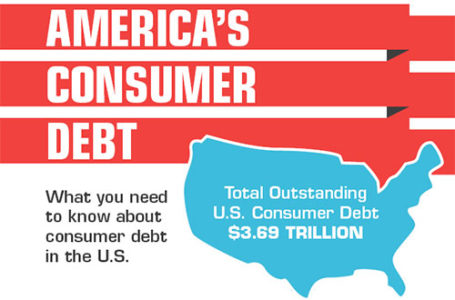Don’t leave credit approvals to chance! Plan ahead to get the best rates and terms.
Good credit is essential anytime you want to apply for a new loan or credit card. You’ll get the lowest interest rates and qualify for the best terms and rewards. So, why leave your credit to chance if you know you’re going to apply for a new loan or credit in the near-future? A little planning can ensure you get the best deal, which will make it easier to manage the new debt.
Step 1: Check your credit
Ideally, you want to check your credit at least six months before your new credit application. This gives you time to go through credit repair and build credit if there’s something dragging down your score.
You can download your credit reports to review them at annualcreditreport.com. This will allow you to see if there’s any negative information that could be hurting your score. If that negative information is inaccurate, then you should proceed to step 2 to repair your credit.
If you have a credit monitoring tool, you will also be able to check your credit score. See where your score stands now. Good tools will also tell you why your score may be low and what you can do to improve it. This can help you set up a roadmap for getting your score as high as possible before you apply.
Step 2: Repair your credit
If you find mistakes or errors as you review your credit report, you need to go through credit repair to correct them. This process can take anywhere from 30 days to a few months, depending on how many items you need to dispute. This is one of the reasons you want to check your credit early, to give yourself time to get through credit repair before you apply.
Although you can dispute mistakes yourself directly with the credit bureaus, it’s usually recommended to go through a professional credit repair company. This ensures you have the greatest chances of success in having those negative items removed. Credit disputes can be tricky! If they’re not worded correctly, you can lose a dispute even if the item is an error. Credit repair services know how to get you the results you want.
Step 3: Take the right steps to maximize your score
There are certain actions you can take that will be good for your score during these six months and certain actions that you want to avoid because they would hurt your score.
- Make all your payments on time
- Get your credit card balances as low as possible (paid in-full is ideal)
- Make sure no credit balance is above 30% of the available credit limit for that account
- Don’t apply for any other credit or authorize any credit checks except on the loan or credit card you want
- Don’t close any accounts and make sure your accounts remain open and in good standing
- Stay on top of your bills to avoid collections from things like utilities or unpaid medical bills
As your credit card balances decrease, your score will increase. This can significantly improve your score so it’s as high as possible before you apply for the loan or credit card.
Step 4: Shop smart to avoid unintentional credit damage
Anytime you authorize a credit check, it creates a hard inquiry on your credit report. Too many of these inquiries in a 6-month window will hurt your score. So, when you’re ready to apply for your loan, make sure to shop smart.
You can ask lenders for quotes and use online loan or credit card comparison tools without damaging your credit score. You won’t get specific terms – all rates and offers will be estimates, subject to approval based on your score. However, only authorize a credit check once you’ve found the specific loan or credit card that offers the best value. If you apply for multiple loans at once, with the idea that you’ll only end up taking the best rate, you could damage your score in the process. That means you won’t qualify for that best rate once you’re ready to sign the lending agreement.
The exception to this is with mortgages and auto loans. Credit bureaus group credit checks on these two types of loans that happen within a few weeks of each other. This allows you to really shop around and check rates before you get the loan. So, you can authorize multiple credit checks while shopping for a mortgage or auto loan without damaging your score. But for personal loans, student loans and credit cards, only apply once!
What are the benefits of building credit before a new application?
- You’ll qualify for the lowest interest rate possible, which will save you money over the life of the loan or credit card.
- On auto loans, you’ll be able to qualify for those attractive dealership offers like no-money-down or interest-free offers.
- On a mortgage, you may qualify for special promotions from the lender, such as no closing costs.
- Better credit can also mean you qualify for larger loan amounts on all loans.
- Some lenders offer longer terms to people with better credit
- On credit cards, the best reward programs are usually reserved for people with excellent credit.
- Promotional and teaser rate periods on credit cards are also longer when you have better credit. For instance, you may qualify for 0% APR for up to 18 months on a balance transfer credit card if you have good credit.

